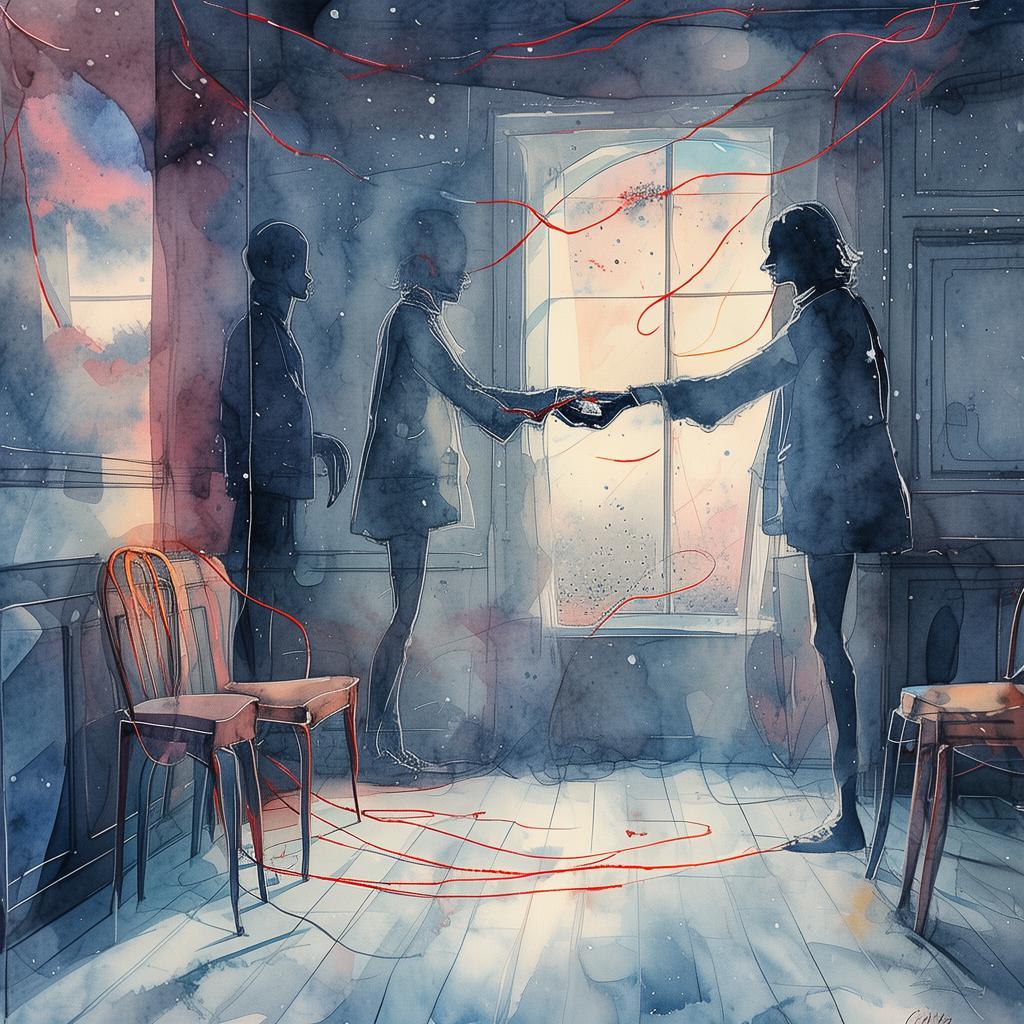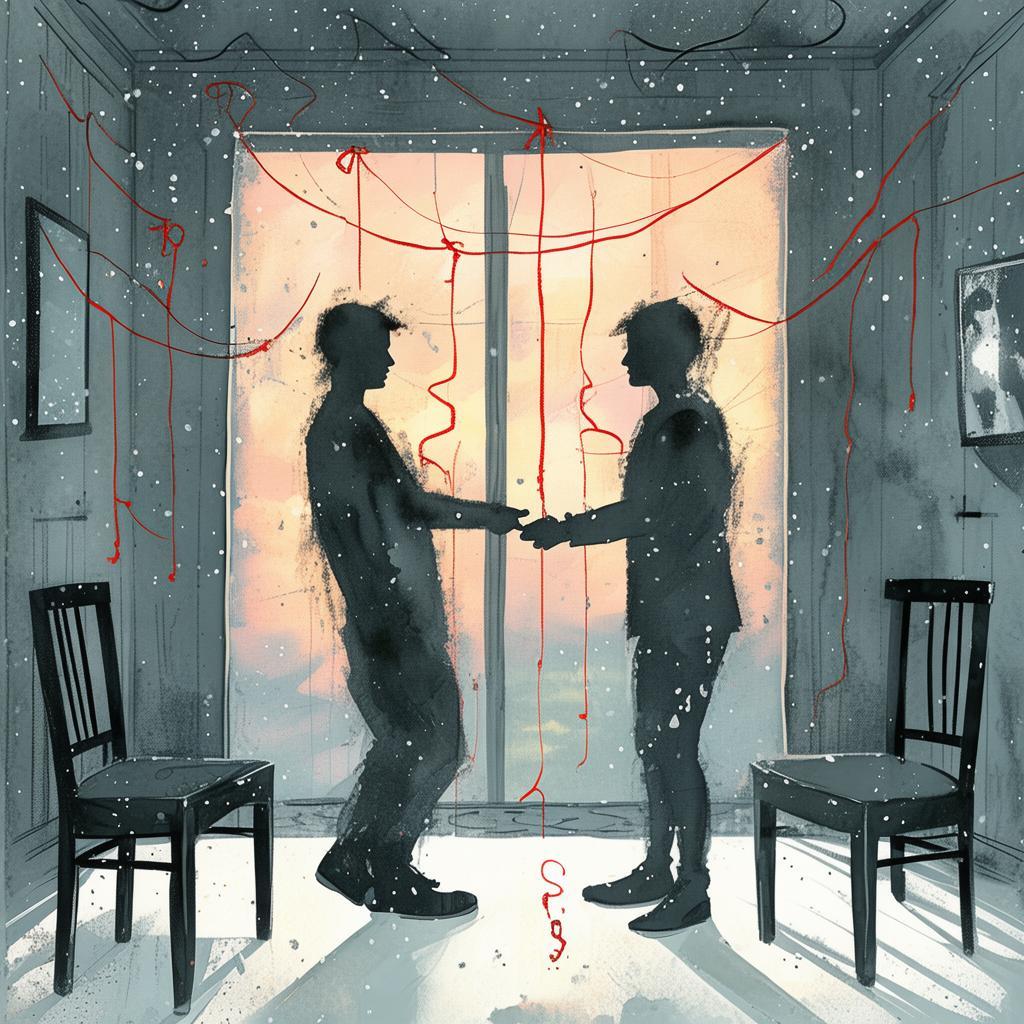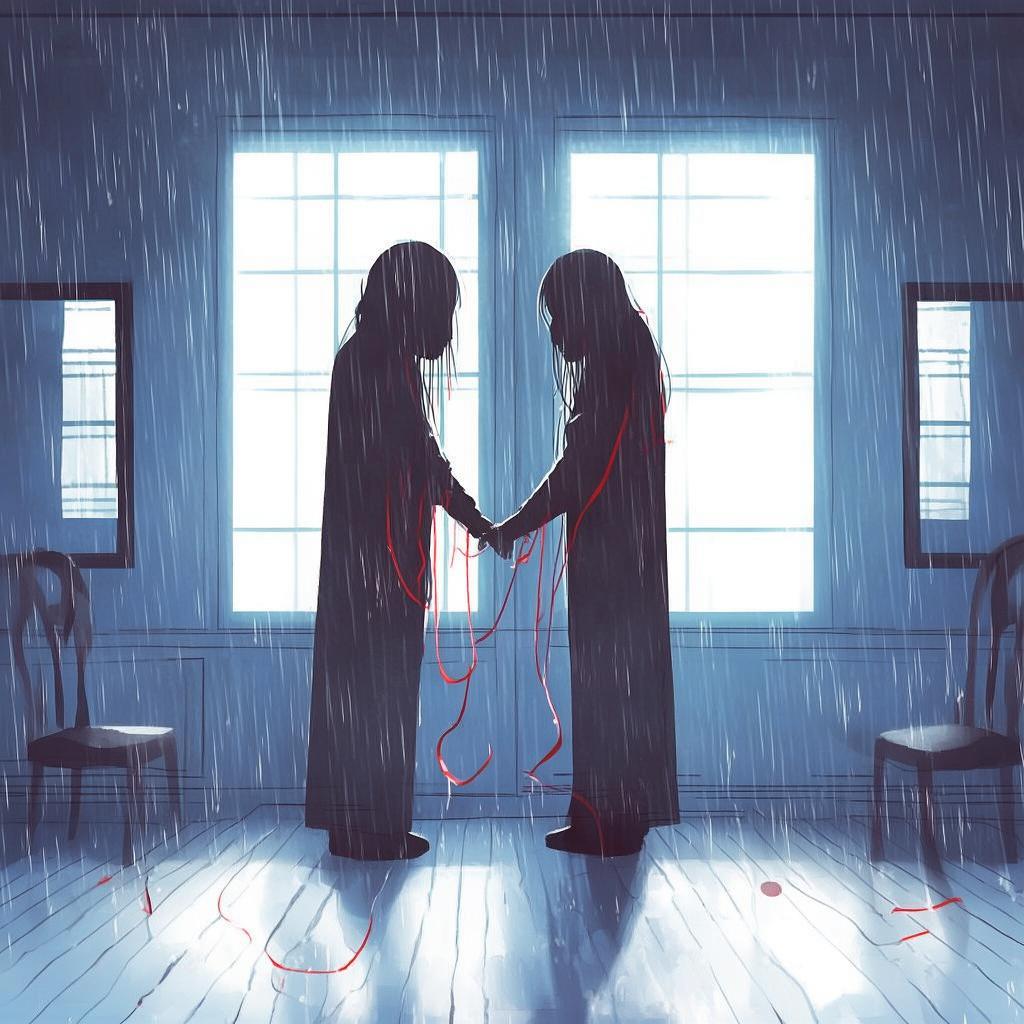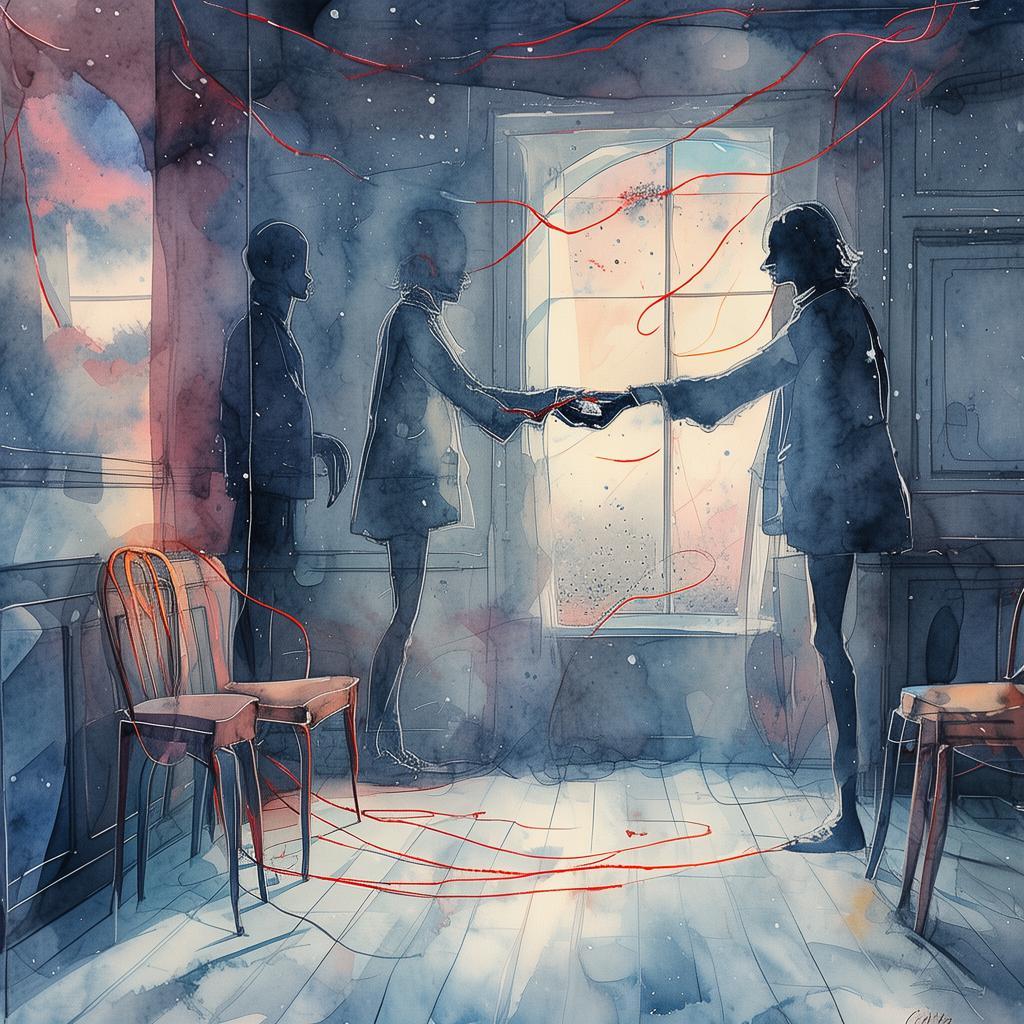Whispers of the Damned: A Love That Defies Death
In the heart of London, amidst the labyrinthine streets and towering Victorian architecture, there stood an old, abandoned mansion known only to the locals as "The Damned House." It was a place shrouded in mystery and fear, whispered about in hushed tones and avoided at all costs. Yet, amidst the shadows, a tale of love and betrayal unfolded, one that would change the lives of those brave enough to uncover it.
Maxwell Carlington, a successful but morally ambiguous lawyer, had always prided himself on his ability to navigate the gray areas of the law. His career was built on winning cases at any cost, and his clients were often those with less than savory reputations. It was this very skill that landed him the chance of a lifetime—the chance to represent the mysterious and reclusive owner of The Damned House, a man named Lord Victor Devereaux.

Victor was a man of great wealth and power, yet he lived a life of solitude. His mansion was a fortress, and he was rumored to be the ghost of a man who had met a tragic end. Maxwell's intrigue was piqued, and he saw this case as a chance to make a name for himself, to delve into a mystery that could be his ticket to the top of the legal world.
As Maxwell delved deeper into the case, he discovered that Victor's story was more complex than he had ever imagined. It was a tale of love, loss, and a curse that bound Victor to the very walls of his home. Maxwell became ensnared in the web of Victor's past, a past that included a forbidden romance with a man who had been his closest friend.
The more Maxwell learned, the more he realized that the case was not just about defending Victor's interests, but about uncovering the truth behind the love story that had driven Victor to madness. The romance between Victor and his lost love was one that had been forbidden by society, a love that had ended in tragedy.
One evening, as Maxwell was reviewing documents in Victor's study, he heard a faint whisper. It was the voice of a man, a man who spoke of love and loss, of a love that had withered under the weight of society's judgment. The voice grew louder, more insistent, and Maxwell found himself drawn to it, unable to resist the pull of the supernatural force that seemed to emanate from the very walls of the mansion.
The whispering continued, and Maxwell felt a strange connection to the voice, as if it were calling out to him. He began to see visions, images of a man and a boy, a father and son, whose love was as deep as it was forbidden. He learned that Victor's love had been a silent one, a love that had been lost to the world but not to the man within the mansion.
Maxwell's moral compass began to sway, and he found himself torn between his loyalty to his client and his growing affection for the man he had come to admire. He realized that Victor's case was not just about legal representation; it was about understanding and embracing the love that had driven him to his current state.
The climax of the story came when Maxwell was forced to confront his own biases and the prejudices of the society he had long profited from. He discovered that Victor's love had been a beacon of hope, a reminder that love, no matter how forbidden, could still light the darkest of souls.
In the end, Maxwell made a decision that would change his life forever. He chose to defend Victor's love, to stand by him against the world that had once forbidden it. He chose to become the Phantom's Advocate, a lawyer who would fight for love in all its forms, no matter the cost.
The story concluded with Maxwell leaving the mansion, the door closing behind him with a finality that felt like a new beginning. He knew that he had changed, that he had found a piece of himself that had been missing. The Damned House was still there, still whispered about in hushed tones, but Maxwell had left a part of his soul behind, a soul that had been touched by the love that had defied death.
Maxwell Carlington returned to his law practice, a changed man. He continued to win cases, but with a newfound sense of purpose. He became the advocate for the marginalized, the protector of the underdog, and the voice for love that had been shunned by society. And in doing so, he had found his own peace, a peace that had been long overdue.
✨ Original Statement ✨
All articles published on this website (including but not limited to text, images, videos, and other content) are original or authorized for reposting and are protected by relevant laws. Without the explicit written permission of this website, no individual or organization may copy, modify, repost, or use the content for commercial purposes.
If you need to quote or cooperate, please contact this site for authorization. We reserve the right to pursue legal responsibility for any unauthorized use.
Hereby declared.









